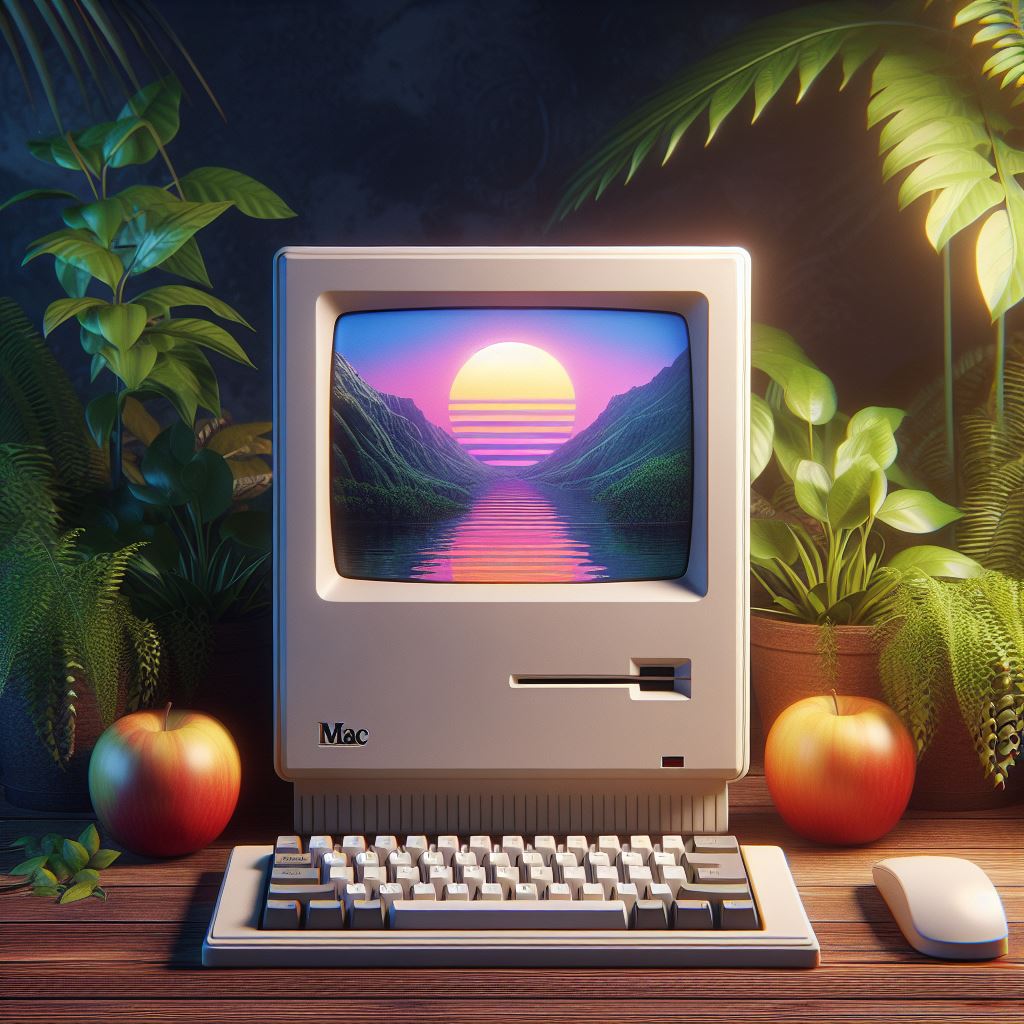
On Mac's 40th Anniversary
Reading Time: 5-7 minutes
I was born in 1994, so the Macintosh would be like an older brother to me. I’m a Mac owner since 2013, so just more than 10 years, but I’ve been an Apple user for much longer - got my first iPod around 2005.
It was just around that time that the Mac had its (or his) 20th anniversary.** Steve Jobs**, in an interview with Jason Snell on MacWorld on February 2nd, 2004, keeps inspiring me when he talked about how a TV and a computer will not merge, but they will communicate with each other in the future, predicting AirPlay:
Do you have any other thoughts about where your competitors are taking their strategies? For example, Windows Media PCs are computers attached to TV sets. Well, we’ve always been very clear on that. We don’t think that televisions and personal computers are going to merge. We think basically you watch television to turn your brain off, and you work on your computer when you want to turn your brain on. Are there some complementary aspects to it? Well, they want to link sometimes. Like, when you make a movie, you burn a DVD and you take it to your DVD player. Someday that could happen over AirPort, so you don’t have to burn a DVD — you can just watch it right off your computer on your television set. But most of these products that have said, “Let’s combine the television and the computer!” have failed. All of them have failed.
AirPort would die slowly a few years later, service and related products being shut down in the late 2010s, but AirPlay would replace the tech, and work really well.
Also, now I understand what he meant when he said, in an essay on the premiere issue of MacWorld in 1984:
The people who are doing the work are the moving force behind the Macintosh. My job is to create a space for them, to clear out the rest of the organization and keep it at bay. I can’t spend enough time here, unfortunately, because I have other responsibilities. But every spare moment I have, I dash back because this is the most fun place in the world.
Steve Jobs was not the mind behind the product. He was the one who made the product(s) possible by carefully organizing the company so that ideas would fly and be caught and transformed into reality like never before. When he returned to Apple in 1996, he didn’t have ideas about products: he had ideas to simplify the lineup, and made Jony Ive design the first iMac. A visionary is not someone who does the work, but who lets other do the work in the best way possible.
On the Mac’s 40th anniversary, I just turned 30. I feel so small compared to him - at 30, he was multi-millionaire and, most of all, was just fired from Apple, getting the chance, once again, to work freely on something new. That something was NeXTSTEP, the computer operating system that would be the foundation of Mac OS X, and Pixar, the animation studio that made the best movies you could watch as a kid in the 1990s, namely Toy Story. In Steve’s words, during the famous Stanford speech:
I was lucky — I found what I loved to do early in life. Woz and I started Apple in my parents’ garage when I was 20. We worked hard, and in 10 years Apple had grown from just the two of us in a garage into a $2 billion company with over 4,000 employees. We had just released our finest creation — the Macintosh — a year earlier, and I had just turned 30. And then I got fired. How can you get fired from a company you started? Well, as Apple grew we hired someone who I thought was very talented to run the company with me, and for the first year or so things went well. But then our visions of the future began to diverge and eventually we had a falling out. When we did, our Board of Directors sided with him. So at 30 I was out. And very publicly out. What had been the focus of my entire adult life was gone, and it was devastating. [...] I didn’t see it then, but it turned out that getting fired from Apple was the best thing that could have ever happened to me. The heaviness of being successful was replaced by the lightness of being a beginner again, less sure about everything. It freed me to enter one of the most creative periods of my life. During the next five years, I started a company named NeXT, another company named Pixar, and fell in love with an amazing woman who would become my wife. Pixar went on to create the world’s first computer animated feature film, Toy Story, and is now the most successful animation studio in the world. In a remarkable turn of events, Apple bought NeXT, I returned to Apple, and the technology we developed at NeXT is at the heart of Apple’s current renaissance. And Laurene and I have a wonderful family together.
A lot of articles I read this morning were about the Mac entering is mid-life crisis, yet being faster, sleeker and with more energy (=battery life) than ever. Since I’m exactly 10 years younger, I feel like I see the Mac being a peek into my future, just like it was when I was 20. The Mac has had ups and downs: it has been glorified when it was born and when Steve returned to Apple, and then again when its foundation became the seed for the iPhone, but then it was left alone, eclipsed by the rise of the iPad. Then it rose again, with the Apple Silicon chips, most notably on the MacBook Air, the world’s best selling laptop in history probably. And now, in Jason Snell words on The Verge:
[...] And consider the Vision Pro, Apple’s newest computing platform. Out of the box, it’ll run iPad apps as well as native apps. But Apple’s also pushing another visionOS feature, one that necessitated a complete rewrite of the Mac’s screen-sharing infrastructure: you can use the Vision Pro as a big Mac monitor. It remains to be seen how well it’ll all work, but the fact remains that Apple’s shiniest new toy is... a Mac accessory.
I’m writing this on a Mac Mini M1 I bought in 2021. I paid around 900€ for it, and it is an insanely cheap price for a machine this powerful. I’ve used it a lot for the past 3 years, and it hasn’t showed slowdowns, so I’ll keep it for many more years.
This is, perhaps, why Mac sales have fallen 25% in 2023 and why Apple is not so sad about it: Macs lasts longer than normal Windows PCs, so the less they’ll sell, the better the product. I think it’s a compromise that both investors and Apple executives know, and do not suffer from.
After all, Apple is making more and more money on services like Apple TV, Apple Fitness+ and iCloud, and that’s only going to grow over time. The Mac is only a platform, the best one, to make antything Apple-y possible.
In Greg Joswiak’s (senior vice president of Worlwide Marketing) words:
“We run Apple, one of the largest companies in the world, on Mac.”
Happy 40th birthday, Mac!

